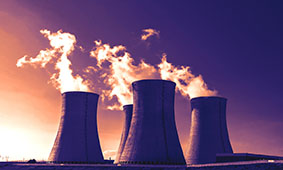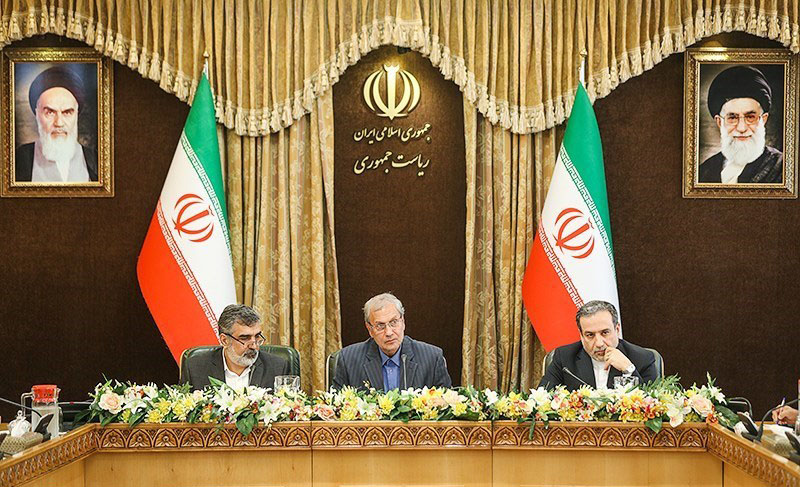
Iran Lifts Uranium Enrichment to Over 3.67%

The formal announcement about Iran’s new step in reducing its commitments under the Joint Comprehensive Plan of Action (JCPOA) was made at a press conference in the President’s office in Tehran.
The joint press conference was attended by Spokesman for the Atomic Energy Organization of Iran (AEOI) Behrouz Kamalvandi, Deputy Foreign Minister for Political Affairs Seyed Abbas Araqchi, and the Administration’s Spokesman Ali Rabiee.
Kamalvandi announced that Iran has increased the level of uranium enrichment to supply fuel for its nuclear power plants.
The enrichment would stand at 5 percent for now, he added, saying Iran may begin higher-grade uranium enrichment to produce fuel for the Tehran nuclear reactor in future.
Tehran’s new decision to increase the level of uranium enrichment to higher percent purity level came after the JCPOA parties missed a 60-day deadline to fulfill their undertakings and ensure Iran’s economic interests under the agreement.
President Hassan Rouhani had warned on Wednesday that the second step of reduction in Iran’s commitments would take place on Sunday, saying, “On July 7, the level of (uranium) enrichment in Iran will not be 3.67 percent anymore, as we will abandon such a commitment and increase it (enrichment) to any amount that we need.”
Iran maintains that the new measures are not designed to harm the JCPOA, but to save the accord by creating a balance in the commitments.
Iran and the Group 5+1 (Russia, China, US, Britain, France, and Germany) on July 14, 2015, reached a conclusion over the text of the nuclear deal.
The accord took effect in January 2016 and was supposed to terminate all nuclear-related sanctions against Iran all at once, but its implementation was hampered by the US policies and its eventual withdrawal from the deal.
On May 8, 2018, US President Donald Trump pulled his country out of the nuclear accord.
Following the US withdrawal, Iran and the remaining parties launched talks to save the deal.
However, the EU’s failure of ensure Iran’s economic interests forced Tehran to stop honoring certain commitments, including an unlimited rise in the stockpile of enriched uranium.



Trump weighs using $2 billion in CHIPS Act funding for critical minerals

Electra converts debt, launches $30M raise to jumpstart stalled cobalt refinery

Codelco cuts 2025 copper forecast after El Teniente mine collapse

Barrick’s Reko Diq in line for $410M ADB backing

Abcourt readies Sleeping Giant mill to pour first gold since 2014

SQM boosts lithium supply plans as prices flick higher

Nevada army depot to serve as base for first US strategic minerals stockpile

Pan American locks in $2.1B takeover of MAG Silver

Viridis unveils 200Mt initial reserve for Brazil rare earth project

Kyrgyzstan kicks off underground gold mining at Kumtor

Kyrgyzstan kicks off underground gold mining at Kumtor

KoBold Metals granted lithium exploration rights in Congo

Freeport Indonesia to wrap up Gresik plant repairs by early September

Energy Fuels soars on Vulcan Elements partnership

Northern Dynasty sticks to proposal in battle to lift Pebble mine veto

Giustra-backed mining firm teams up with informal miners in Colombia

Critical Metals signs agreement to supply rare earth to US government-funded facility

China extends rare earth controls to imported material

Galan Lithium proceeds with $13M financing for Argentina project

Kyrgyzstan kicks off underground gold mining at Kumtor

Freeport Indonesia to wrap up Gresik plant repairs by early September

Energy Fuels soars on Vulcan Elements partnership

Northern Dynasty sticks to proposal in battle to lift Pebble mine veto

Giustra-backed mining firm teams up with informal miners in Colombia

Critical Metals signs agreement to supply rare earth to US government-funded facility

China extends rare earth controls to imported material

Galan Lithium proceeds with $13M financing for Argentina project

Silver price touches $39 as market weighs rate cut outlook

















